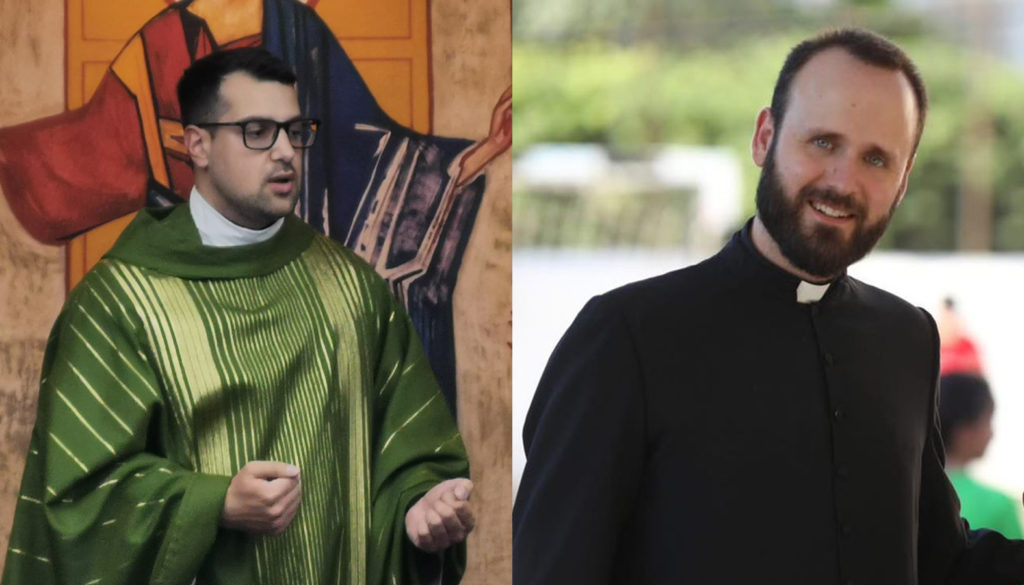Father Miguel Pérez Jiménez and Father Igino Sistilli are two young priests ministering to Catholics in very different parts of the Holy Land.
Originally from Murcia, Spain, 33-year old Pérez is a pastor in Nablus, in the Palestinian-controlled West Bank. In biblical times, the city was known as Shechem, the place where Abraham offered his first sacrifice to God during his journey into Canaan and centuries later became known as the site of Jacob’s Well, where Jesus spoke to the Samaritan woman.
32-year-old Sistilli, meanwhile, is originally from Italy and serves as pastor in the Israeli port city of Haifa. While most of Perez’s parishioners are Arab Christians, Sistilli’s parishioners are a mix of Hebrew-speaking Catholics and Hispanic immigrants.
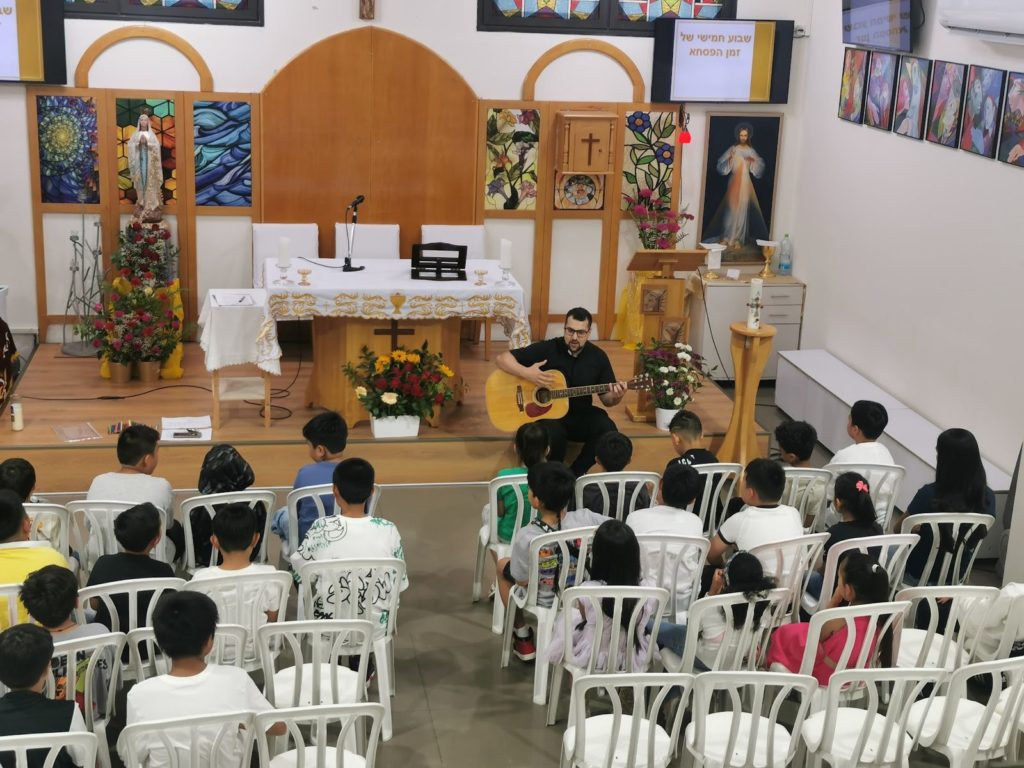
Both men studied at the Redemptoris Mater Missionary Seminary in Galilee and were ordained for the Latin Patriarchate of Jerusalem, which serves Latin-rite Catholics in Israel, Palestine, Jordan, and Cyprus.
Theirs are not easy assignments. Over the past few months, Israel’s military has clashed with forces in Lebanon, Iran, and Syria, in addition to the ongoing war with Hamas in Gaza.
To help understand what the violence means for Christians in the region, Angelus interviewed both priests in late July.
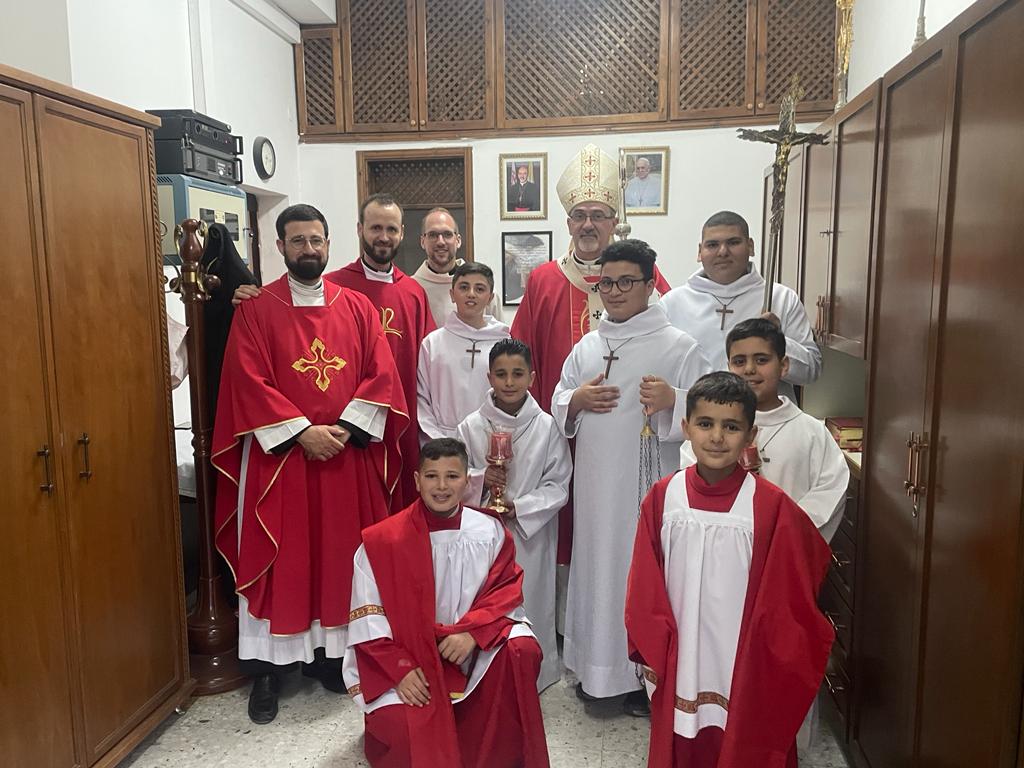
Father Miguel Pérez Jiménez, Nablus, Palestinian Territory
Father, based on recent news headlines, it has not been an easy few weeks for Christians in Holy Land. Do you see a pattern or explanation behind the recent attacks?
In the last month, several events have occurred in Palestine related to Christians.
First, here in Nablus, the Israeli army destroyed the lathe machines of a Christian family, and a week later the workshop was completely demolished. This was done without any explanation or justification, leaving 10 families without a source of income.
Then, Israeli settlers vandalized the Christian village of Taybeh. Finally, the parish church in Gaza was attacked, despite the fact that it is known to be a place of worship and that, since the beginning of the last war, it has provided shelter to dozens of families and 50 disabled children.
Do I see a pattern in these events? Yes, one that sends a message to Christians: “You have no future here.” I am not making this up; that is the phrase the Israeli settlers wrote on the walls of Taybeh.
All this has happened alongside the terror caused by the attack on the church of St. Elijah in Syria by an Islamist militant group. Only God can know if this was a coincidence or not.
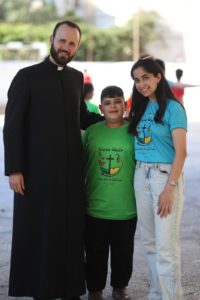
You’re a pastor in a Latin-rite Catholic parish in Nablus. How has life changed there since the Hamas attack on Israel in October 2023?
Life has changed dramatically here since the beginning of the war. Nablus was a city visited by visitors who came to shop, by tourists attracted by history and folklore, and especially by pilgrims who came to visit Jacob’s Well and other holy sites in the area.
Now, all this activity has disappeared because the area is full of Israeli checkpoints that make movement very difficult. The economy is at unsustainable levels, which affects the livelihoods of families here.
Furthermore, many of Nablus’ residents worked in Israel and have all lost their jobs. Right now it is very difficult for a Palestinian to obtain a permit to enter Israel.
On the other hand, Nablus is not being bombed, so life within the city is relatively calm; the Israeli army’s incursions into Nablus are very swift and target very precisely. Furthermore, the Palestinian Authority is making a great effort to prevent chaos, which is possible given the poverty many families are facing.
What do you tell parishioners who are scared of the future, or thinking of moving away?
The residents of Nablus are accustomed to geopolitical crises; they are not intimidated. However, it is true that emigration is tempting, since instability is an obstacle to development. And things are not expected to calm down anytime soon.
For my part, I do not demonize emigration, but I explain to them the great challenges Christians face in the West, which is where they intend to travel. I try to explain to them that the cross is part of Christian life and that we are called to bear it always and everywhere, to be witnesses of Christ and to make manifest in our bodies that he is risen.
In all this mess, what is the primary mission of Christians in the Holy Land right now?
The presence of Christians here, of course, is to be the presence of Christ, dead and risen. This also translates into being good citizens who live out their love for their homeland, building it peacefully. This confuses those who only believe in violence, and it makes them question their ideas.
Father Igino Sistilli, Haifa, Israel
Father, living in Haifa, which of the recent conflicts has affected your parishioners the most?
We'’e been in the midst of this conflict (the Israel-Hamas War) for over 600 days now. But practically speaking, we’ve been affected less by the military operations in Gaza, and more by the conflict in Lebanon with Hezbollah, and the recent operation in Iran.
The reaction to the two conflicts has been very different. During the war with Hezbollah, life in the country continued almost as normal, the church was open, and pastoral activities continued as usual. Being Italian, I’m unaccustomed to experiencing war. So it was hard to continue life as usual, knowing that at any moment we would have to run to the nearest shelter if sirens warned of incoming missiles.
During this time, the parish community lived this moment of uncertainty and danger with faith, gathering regularly to celebrate holy Mass, especially on Saturday evenings, when we celebrate Sunday Mass and gather together to be together.
The Lord has protected us and consoled us in this difficult time precisely through the presence of the community, which has not abandoned its life of faith to give way to fear and uncertainty.
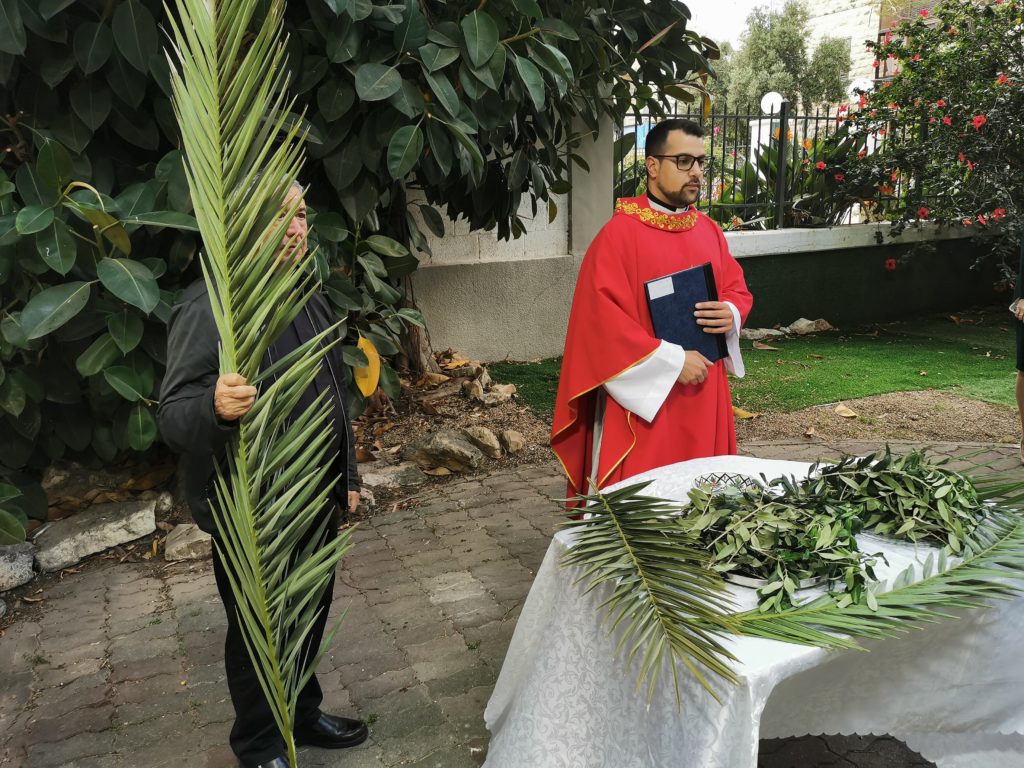
What about the war with Iran in June?
The experience during the 12-day military operation in Iran was different. The country was paralyzed, most educational and work activities were suspended, and we too had to close the church.
During this time, pastoral work was carried out by visiting people in their homes, bringing them Communion, hearing confessions, and celebrating Mass in various homes. On Saturday, unable to gather in church, we gathered virtually, celebrating the solemnity of Corpus Christi without receiving Communion, but listening to the consoling word of the Lord, who nourishes us and accompanies us in adversity. All participants had the opportunity to share their experiences of war, their fear, their difficulties, their joys, and their uncertainties, and it was a very powerful moment for all of us.
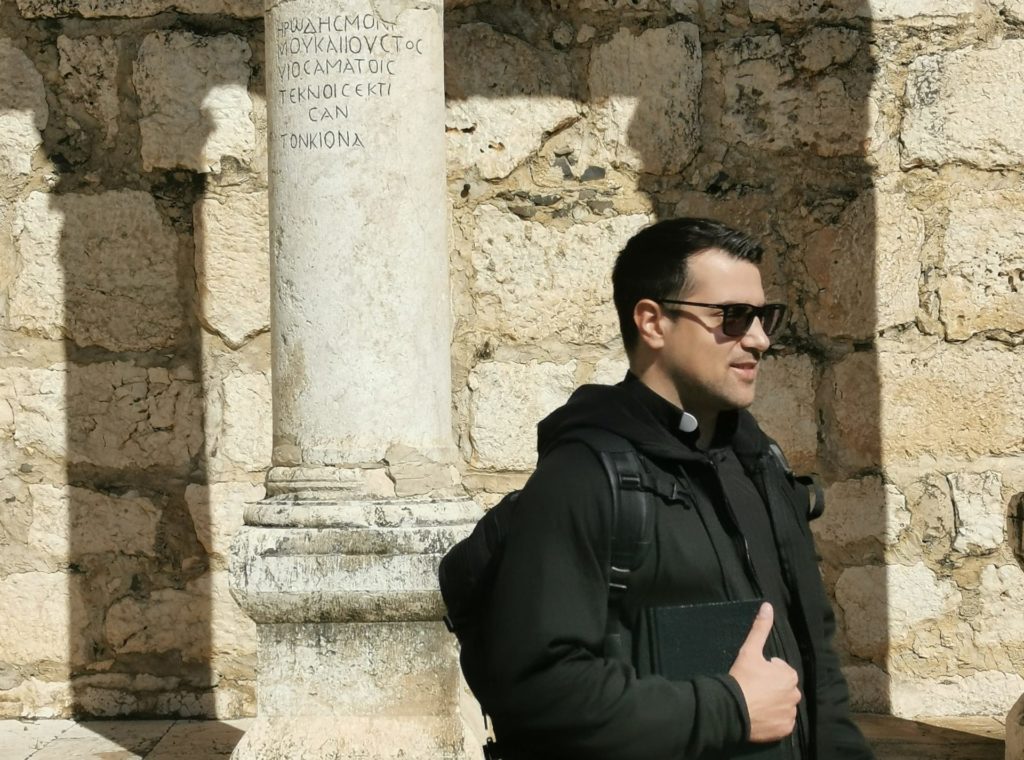
Besides the obvious security dangers, what’s the hardest part of serving your people right now?
Many historical wounds have been opened here since the war began on Oct. 7, 2023. People’s outlooks have hardened. At a social level, the word “peace” has disappeared from people's everyday vocabulary and it has been a tremendous challenge to preach the Gospel in this situation, in which the devil has eliminated even human empathy, the ability to see the suffering of others.
My greatest commitment has been to keep politics at bay, to ensure that our church and our Catholic community remain a place of encounter with the living Jesus Christ, without politicizing the message of the Gospel. A wide variety of people come to pray with us: converts, Russians, Ukrainians, Latin Americans, Italians, Arab Israelis, and many others, and the Lord has granted that our church, perhaps the smallest in Haifa, be a meeting place for all.
In these last two years, we’ve seen how important community is, and how the Church accompanies as a mother. God calls us to discover that he is a Father who loves us as we are, with our weaknesses and limitations. We, as Hebrew-speaking Christians, inextricably linked to Israel, continue to pray for this country, for the return of the hostages, and for every single person suffering in this conflict, certain that hatred and violence will not stifle our prayers.
